Consult Oncologists Online - Cancer Specialists (32 doctors)

Dr. Tarun Jindal
Uro Oncologist
14 Years • MS (AIIMS, New Delhi), MCh (Gold Medalist), Fellow, VUI, Henry Ford Hospital, Detroit, USA; Robotic and Laparoscopic surgeon
Kolkata
Apollo Multispeciality Hospitals , Kolkata, Kolkata
50+ recommendations

Dr. Ganesh Chandra Subudhi
Medical Oncologist
16 Years • MBBS, MD- General Medicine. DrNB- Medical Oncology (DNSH, Delhi ). Consultant - Medical Oncology at Apollo Cancer Centre, Bhubaneshwar.
Bhubaneswar
Apollo Hospitals Old Sainik School Road, Bhubaneswar

Dr. Gopal Kumar
Head, Neck and Thyroid Cancer Surgeon
15 Years • MBBS, MS , FARHNS ( Seoul, South Korea ), FGOLF ( MSKCC, New York )
Delhi
Apollo Hospitals Indraprastha, Delhi
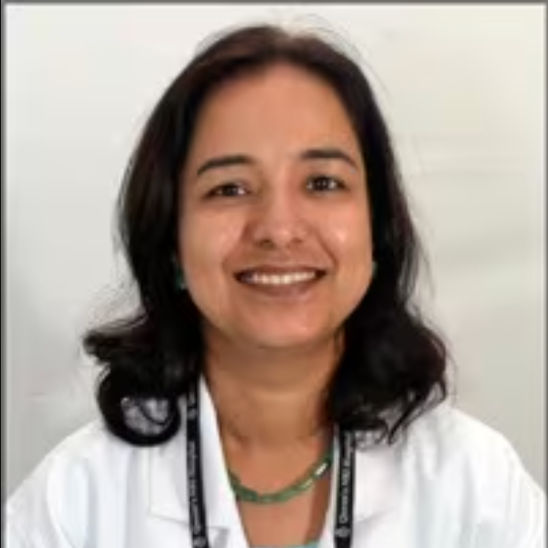
Dr Sunita Samleti
Oncologist
18 Years • M.D. (Pathology)- TN Medical College, Mumbai University, Mumbai, Mar 2005 M.B.B.S. Grant Medical College, Mumbai University, Mumbai, Oct 1999
Chinagadila
Apollo Hospitals Health City Unit, Chinagadila
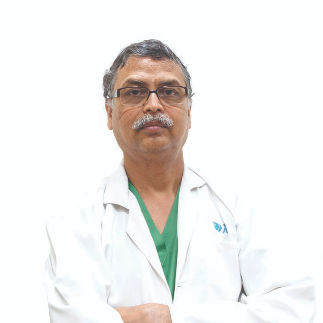
Dr. Praveen Kumar Garg
Surgical Oncologist
26 Years • MBBS, M.S.(Gen.Surg.), M.Ch.(OncoSurg.)
Delhi
Apollo Hospitals Indraprastha, Delhi
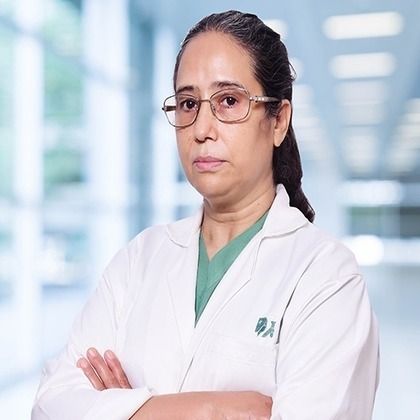
Dr. Ruquaya Ahmad Mir
Surgical Oncologist
20 Years • MBBS, DNB
Delhi
Apollo Hospitals Indraprastha, Delhi
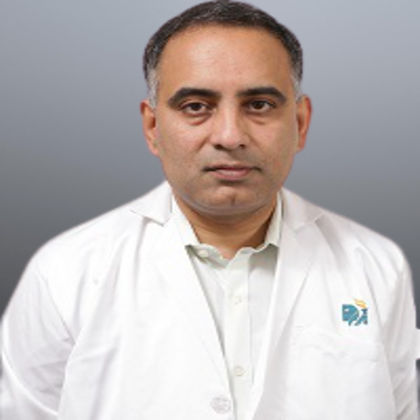
Dr. Raja T
Oncologist
20 Years • MBBS; MD; DM
Chennai
Apollo Hospitals Greams Road, Chennai
100+ recommendations
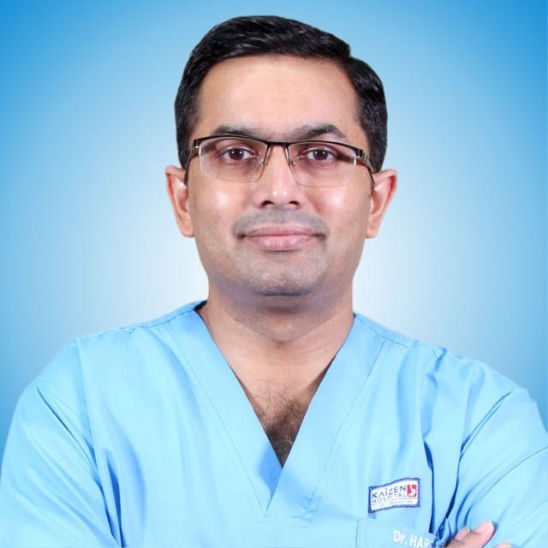
Dr. Harsh J Shah
Surgical Oncologist
15 Years • MS, MCh (GI), DrNB (GI)
Ahmedabad
Apollo Hospitals Gandhinagar, Ahmedabad
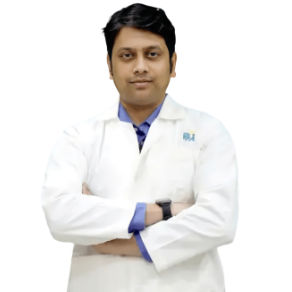
Dr. Prashant Chandra Das
Surgical Oncologist
15 Years • MBBS (MKCG Medical college) MCh (Surgical Oncology, Kidwai memorial institute of Oncology, Bangalore) MS (General Surgery, BHU Varanasi) Fellowship in Minimal Access Surgery ( FMAS). ESSO Course On Minimally Invasive Esophagectomy & Gastrectomy (UMC, Utrecht, Netherlands). Trained in Robotic and Laparoscopic Cancer Surgery.
Bhubaneswar
Apollo Hospitals Old Sainik School Road, Bhubaneswar
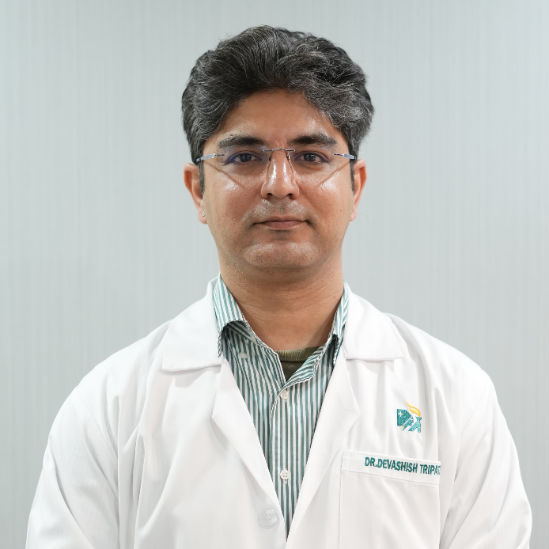
Dr Devashish Tripathi
Radiation Specialist Oncologist
20 Years • MBBS, PLAB, MRCP (UK)- General Medicine, FRCR (Oncology), Certificate of Completion of Training (CCT)- Clinical Oncology
Delhi
Apollo Hospitals Indraprastha, Delhi
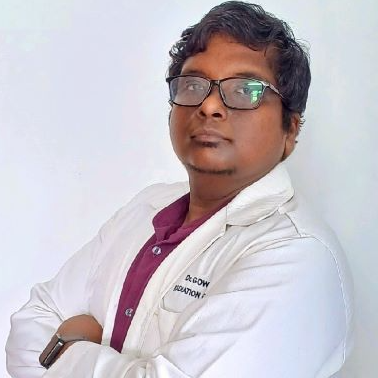
Dr Gowshikk Rajkumar
Oncologist
10 Years • MBBS, DMRT, DNB in Radiation oncology
Bengaluru
Apollo Clinic, JP nagar, Bengaluru
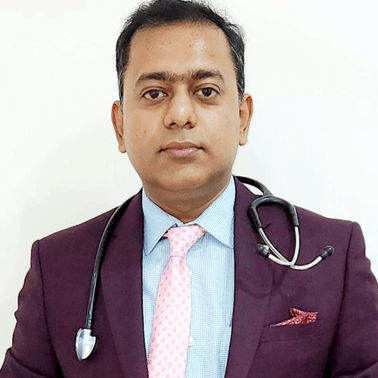
Dr. Sanchayan Mandal
Oncologist
17 Years • MBBS, DNB Raditherapy, DrNB Medical Oncology
East Midnapore
VIVEKANANDA SEBA SADAN, East Midnapore
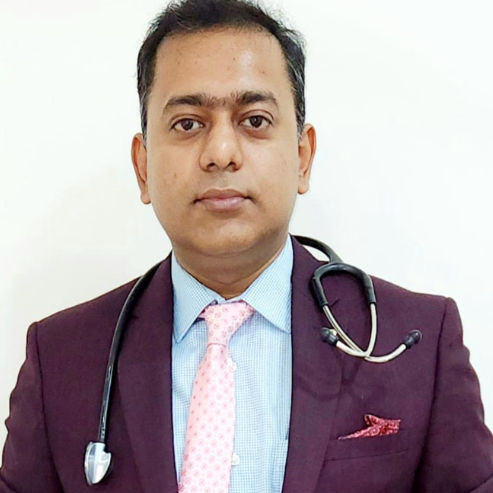
Dr. Sanchayan Mandal
Oncologist
17 Years • MBBS, DrNB( MEDICAL ONCOLOGY), DNB (RADIOTHERAPY),ECMO. PDCR. ASCO
Kolkata
Dr. Sanchayan Mandal Oncology Clinic, Kolkata

Dr. Itisha Chaudhary
Oncologist
14 Years • MBBS, DNB - General Surgery, MCh - Surgical Oncology
Gurugram
Dr Deepak Sharma's Urology clinic, Gurugram
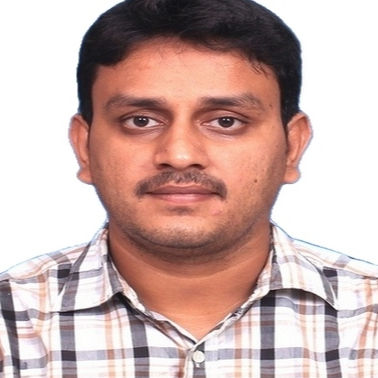
Dr. Arvind Raj
Oncologist
5 Years • M.S ( General Surgery), M.Ch ( Surgical Oncology)
Vellore
Cancer and Diabetic care center, Vellore
Oncology
Booking an appointment with a top oncologist is now easier than ever with Apollo 24|7. Our user-friendly platform allows you to schedule online or phone consultations with experienced cancer specialists at your convenience. With a wide network of trusted hospitals and clinics, we ensure that you have access to the best oncology care available. Our oncologists are highly skilled in diagnosing and treating various types of cancer, providing personalised treatment plans tailored to your needs. Don't wait any longer; book your appointment with an oncologist at Apollo 24|7 today and take the first step towards better health.
What is Oncology?
Oncology is the branch of medicine dedicated to the study, diagnosis, treatment, and prevention of cancer. An oncologist deals with all forms of cancer and employs various treatments such as chemotherapy, radiotherapy, and surgery to treat cancer patients. The field of oncology is crucial in healthcare due to the significant impact cancer has on individuals and societies globally.
It involves the study of tumour development, the progression of cancer, and research into identifying potential therapies. The primary goal of oncology is not only to eradicate tumours but also to provide a quality life to patients, offering palliative care and support through survivorship or end-of-life stages.
Who is an Oncologist?
An oncologist is a medical specialist trained to manage and treat cancer in patients. Qualifications for oncologists typically include a degree in medicine followed by specialised training in oncology and often further sub specialisation in fields such as medical, radiation, or surgical oncology.
These specialists have comprehensive expertise in diagnosing various types of cancer, determining the stage of cancer, and choosing the appropriate treatment strategy.
They manage patient care from the diagnosis stage through the course of the disease, providing treatments that might include hormone therapy, chemotherapy, radiotherapy, and surgical interventions. Additionally, oncologists play a critical role in counselling patients and their families, guiding them through the disease process and the associated emotional challenges.
What Does an Oncologist Do?
An oncologist is pivotal in the fight against cancer, managing both the clinical and supportive care aspects of treatment. These specialists are integral to diagnosing cancer types and stages, recommending and administering treatments, and providing ongoing care and support to patients throughout their treatment journey.
Key Responsibilities
Diagnosis of Cancer: Oncologists perform tests and procedures like biopsies to diagnose cancer, determining the type and stage to guide treatment decisions.
Treatment Planning and Administration: They develop and oversee cancer treatment plans, which may include surgery, chemotherapy, radiation therapy, and other targeted therapies.
Patient Care: Oncologists monitor the patient’s progress throughout treatment, adjusting plans as needed and managing side effects or complications.
Supportive Care: Providing emotional and psychological support to patients and their families is a critical role, helping them cope with the challenges of cancer diagnosis and treatment.
Research and Education: Many oncologists are also involved in clinical trials and research, contributing to advances in cancer treatments. They also educate patients and families about treatment options and preventive measures.
Daily Activities
Consultations: Meeting with patients to review their medical history, symptoms, and treatment responses.
Interdisciplinary Coordination: Collaborating with a team of healthcare professionals including surgeons, radiologists, and nurses to coordinate comprehensive care.
Procedural Duties: Performing medical procedures necessary for treatment or supportive care.
Record Keeping: Maintaining detailed records of patient care, treatment plans, and progress notes.
Through these activities, oncologists provide a holistic approach to cancer care, aiming to improve survival rates and the quality of life for their patients. Their work requires not only a deep understanding of medical science but also compassion and dedication to patient care.
What are the Other Sub-specialities of Oncology?
Oncology encompasses a range of sub-specialities, each focusing on different types of cancer and patient groups. Here is an overview of the primary sub-specialities within this crucial field:
Medical Oncology: This sub-speciality involves the treatment of cancer using chemotherapy, hormonal therapy, and other medications. Medical oncologists are key in the multidisciplinary cancer care team, managing a patient’s overall treatment and care.
Radiation Oncology: Radiation oncologists use targeted radiation therapy to destroy cancer cells. This treatment can be used alone or in combination with other treatments to shrink tumours and prevent the spread of cancer.
Surgical Oncology: Surgical oncologists perform procedures to remove tumours and surrounding tissues. Surgery is often a first-line treatment for many types of cancer, aiming to remove cancerous cells entirely from the body.
Paediatric Oncology: Specialising in cancers affecting children, paediatric oncologists treat diseases like leukemia, lymphoma, and brain tumours in young patients. Their approach is tailored to the unique needs of children and their developmental stages.
Gynecologic Oncology: These specialists focus on cancers of the female reproductive system including ovarian, cervical, and uterine cancers. Gynecologic oncologists are skilled in both surgical and medicinal cancer treatments.
Haematologic Oncology: Haematologic oncologists, or haematologists, deal with cancers that affect the blood, bone marrow, and lymph nodes, such as leukaemia, lymphoma, and myeloma.
Neuro-Oncology: Neuro-oncologists treat cancers of the brain and nervous system. This sub-speciality requires precise treatment strategies to address tumours in these critical and sensitive areas.
Thoracic Oncology: Focused on cancers of the chest area, including the lungs and oesophagus, thoracic oncologists often deal with some of the most common and challenging types of cancer.
Gastrointestinal Oncology: These oncologists specialise in cancers of the gastrointestinal tract and related organs, such as the stomach, liver, pancreas, colon, and rectum.
Genitourinary Oncology: This area covers cancers of the urinary system and the male reproductive organs, including prostate, kidney, bladder, and testicular cancers. Specialists in this field are adept at managing both surgical and non-surgical treatments.
Each cancer specialist plays a crucial role in the fight against cancer, whether they are working directly with patients as a cancer doctor or behind the scenes in research. Understanding these sub-specialities helps patients and their families navigate their diagnosis and treatment options with more clarity, guided by the expertise of a tumour specialist.
What are the Oncology Examinations or Tests Performed by the Oncologist?
Oncologists employ a variety of examinations and diagnostic tests to accurately identify and stage cancer, which is crucial for developing an effective treatment plan.
Here are some of the most common diagnostic procedures used in the field of oncology:
1.Biopsy: This is a fundamental test where tissue samples are taken from the suspected tumour and examined under a microscope to detect the presence of cancer cells.
2.Blood Tests: Certain cancers release specific markers into the bloodstream. Blood tests can detect these markers and help in diagnosing specific types of cancer, such as prostate and liver cancer.
3.Imaging Tests: These include a range of scans used to create pictures of the inside of the body. Common types include:
X-rays: Often the first imaging test done to look for tumours.
CT Scans: Provide detailed cross-sectional images of body tissues.
MRI Scans: Use magnetic fields to produce detailed images, particularly useful for brain and spinal cord tumours.
PET Scans: Detect radioactive tracers injected into the body, which can highlight areas of high metabolic activity typical of cancer cells.
Ultrasound: Uses sound waves to create images of organs and detect abnormal masses.
4.Endoscopy: A procedure in which a thin, flexible tube with a light and camera (endoscope) is inserted into the body to examine the internal organs and take tissue samples if needed.
5.Genetic Tests: These tests look for specific inherited changes (mutations) in a person's genetic material that might indicate an increased risk of certain types of cancer.
Each of these tests provides valuable information that can help an oncologist determine the presence, extent, and behaviour of cancer, guiding treatment decisions. If you are experiencing symptoms that may suggest cancer, it's important to book oncologist appointments promptly for appropriate screenings and care.
What are the Common Conditions & Diseases that Oncologists Treat?
Oncologists treat a wide range of cancers, each with unique characteristics and treatment requirements. Here are the top 15 conditions commonly managed by these specialists:
Breast Cancer: Abnormal growth of cells within the breast tissues.
Lung Cancer: Malignancies that form in the lung tissue, often associated with smoking.
Prostate Cancer: Cancer developing in the prostate gland in males.
Colorectal Cancer: Cancers of the colon or rectum, linked to age, lifestyle, and diet.
Leukaemia: Cancer of the blood-forming tissues, hindering the body's ability to fight infection.
Lymphoma: Cancers affecting the lymphatic system.
Melanoma: A severe form of skin cancer arising from pigment-containing cells.
Ovarian Cancer: Cancer originating in the ovaries, often diagnosed late due to subtle symptoms.
Pancreatic Cancer: Known for its poor prognosis, affects the pancreas.
Cervical Cancer: Affects the cervix in women, often detected by Pap smear.
Bladder Cancer: Features abnormal cell growth in the bladder lining.
Kidney (Renal) Cancer: Involves cancerous cells in the renal lining.
Endometrial Cancer: Cancer of the lining of the uterus.
Thyroid Cancer: Manifests in the thyroid gland, more common in women.
Head and Neck Cancers: A group of cancers affecting the oral cavity, throat, or larynx.
These conditions vary widely in symptoms and treatment approaches, necessitating specialised care tailored to each patient’s specific needs.
Reasons to See an Oncologist
Visiting an oncologist is crucial when facing symptoms that could indicate cancer, such as unexplained weight loss, persistent pain, abnormal lumps, or changes in bodily functions. These specialists are essential for:
Diagnosis: Confirming the presence and type of cancer.
Treatment Planning: Developing a tailored treatment strategy.
Management and Monitoring: Overseeing treatment efficacy and adjusting as necessary.
Supportive Care: Providing support and palliative care to improve quality of life.
For immediate guidance or when in-person visits are challenging, consider an online oncologist consultation to discuss symptoms and concerns swiftly.
What Types of Procedures do Oncologists Perform?
Oncologists are involved in a variety of procedures, ranging from therapeutic treatments to surgical interventions. These procedures are critical for the diagnosis, treatment, and management of cancer.
Here, we break down the top procedures into two categories: top therapies and top surgeries within oncology.
Top Therapies in Oncology
Chemotherapy: Uses anti-cancer drugs to destroy cancer cells, often administered intravenously.
Radiotherapy: Involves high-energy radiation to kill cancer cells and shrink tumours.
Immunotherapy: Boosts the body’s immune system to fight cancer.
Hormone Therapy: Blocks or removes hormones that fuel certain cancers like breast and prostate cancer.
Targeted Therapy: Uses drugs to target specific genes or proteins that contribute to cancer growth.
Bone Marrow Transplant: Replaces damaged or destroyed bone marrow with healthy bone marrow stem cells.
Photodynamic Therapy: Uses light-sensitive medication and a light source to destroy cancer cells.
Cryotherapy: Destroys tissue with extreme cold, used primarily for superficial cancers.
Top Surgeries in Oncology
Lumpectomy: Removes a breast cancer tumour and a small margin of surrounding tissue.
Mastectomy: Involves the removal of one or both breasts, partially or completely.
Prostatectomy: Surgical removal of the prostate gland.
Cytoreductive Surgery: Removes part of a tumour, which can help other treatments work better.
Whipple Procedure: A complex operation to remove the head of the pancreas, the first part of the small intestine, the gallbladder, and the bile duct.
Lobectomy: Involves the removal of a lobe of the lung in cases of lung cancer.
Oophorectomy: Surgical removal of one or both ovaries.
Each procedure performed by an oncologist has specific indications based on the type, location, and stage of cancer, as well as the overall health of the patient.
Understanding these options can help patients discuss with their oncologist the most appropriate treatment strategy. It is also important for patients to be aware of the oncologist fee associated with each procedure to prepare financially for their cancer care journey.
Why Choose an Apollo 24|7 Oncologist?
Apollo 24|7 oncologists are among the best in their field, offering exceptional expertise and personalised care to patients battling cancer. With extensive training and experience in the latest diagnostic and treatment modalities, our oncologists provide comprehensive care tailored to each patient's unique needs.
From targeted therapies to minimally invasive surgical techniques, Apollo 24|7 oncologists offer a wide range of advanced treatment options to ensure the best possible outcomes. Patients can access our oncologists' expertise through seamless online consultations and in-clinic appointments, ensuring continuity of care throughout their cancer journey.
With a strong focus on patient-centred care and a multidisciplinary approach, Apollo 24|7 oncologists are committed to providing the highest quality of care and support to patients and their families.
What to Expect When Visiting an Oncologist?
Visiting an oncologist can be a pivotal step in a patient’s healthcare journey, especially when dealing with cancer. During the initial visit, patients can expect a thorough assessment that helps the specialist understand the extent of the disease and the best treatment approach.
Comprehensive Assessment: The oncologist will review your medical history, symptoms, and any prior test results.
Physical Examination: A detailed physical exam to check for visible signs of cancer or related issues.
Discussion of Symptoms: You’ll discuss your symptoms and any health concerns.
Diagnostic Tests: The oncologist may order various tests to confirm and stage the cancer.
Treatment Planning: Based on the diagnosis, a treatment plan tailored to your specific condition will be discussed.
Support Services: Information about support services and resources will be provided.
When choosing a specialist, consider looking up oncologist reviews to find the best care available in your area. Always ensure that the oncologist near me option is checked for convenience and timely access to care.
How Can I Get an Appointment With an Oncologist?
Booking an appointment with an oncologist at Apollo 24|7 is a simple and convenient process:
Online Booking: Visit the Apollo 24|7 website and navigate to the "Book an Appointment" section. Select "Oncology" as the speciality and choose your preferred oncologist from the list of available doctors. Select a convenient date and time for your consultation and provide the necessary personal and medical information to complete the booking process.
App-based Booking: Download the Apollo 24|7 app on your smartphone and log in or create a new account. Select the "Appointments" tab and choose "Oncology" as the speciality. Browse through the list of available oncologists and select your preferred doctor. Choose a suitable date and time for your consultation and provide the required details to confirm your booking.
Offline Booking: You can also book an appointment with an oncologist by calling the Apollo 24|7 helpline or by visiting your nearest Apollo Hospital. Provide the necessary information to the customer support representative, who will assist you in scheduling your consultation with the oncologist of your choice.
Oncologists in top cities
- •Best Oncologists in Bengaluru
- •Best Oncologists in Kolkata
- •Best Oncologists in Gurugram
- •Best Oncologists in Chennai
- •Best Oncologists in Chinagadila
- •Best Oncologists in East Midnapore
- •Best Oncologists in Hyderabad
- •Best Oncologists in Lucknow
- •Best Oncologists in Madurai
- •Best Oncologists in Mumbai
- •Best Oncologists in Nashik
- •Best Oncologists in Vellore
Related Treatments
- •Treatment for Carcinoid
- •Treatment for Carcinoma
- •Treatment for Cbd Cancer
- •Treatment for Childhood Acute Lymphoblastic Leukemia
- •Treatment for Angiosarcoma
- •Treatment for basal cell carcinoma
- •Treatment for Brain Cancer Treatment
- •Treatment for Breast Lump Treatment
- •Treatment for Cancer Patient Counseling
- •Treatment for Cancer Screening
- •Treatment for Cancer Screening Cervix Breast
- •Treatment for Cancer Screening Preventive
- •Treatment for Breast Cancer Screening
- •Treatment for Cancer Pain
- •Treatment for Anal Cancer
- •Treatment for Arthritis Physiotherapy
- •Treatment for Bladder Cancer
- •Treatment for Brachydactyly
- •Treatment for Brain Tumor
- •Treatment for Broken Teeth
Related Procedures
- •Doctors for Abdominoperineal resection
- •Doctors for Adrenalectomy
- •Doctors for Anti-Reflux Surgery
- •Doctors for Appendectomy
- •Doctors for Biopsies
- •Doctors for Breast Diseases
- •Doctors for Cholecystectomy
- •Doctors for Colectomy
- •Doctors for Cyst, fibroid, stone, and polyp removals.
- •Doctors for Cystectomy
- •Doctors for Ectopic Pregnancy removal
- •Doctors for Endometriosis surgery
- •Doctors for Esophageal anti-reflux surgery
- •Doctors for Gastrectomy
- •Doctors for Gastric bypass surgery.
- •Doctors for General Checkup
- •Doctors for Hernia repair surgery
- •Doctors for Lipoma
- •Doctors for Liver resection.
- •Doctors for Nephrectomy
FAQs
What does an oncologist do?
An oncologist specialises in diagnosing and treating cancer. They use various therapies such as chemotherapy, radiation, and surgery to manage the disease. These specialists also guide patients through treatment plans, monitor progress, and provide supportive care, ensuring both physical and emotional needs are met during the cancer journey.
When to see an oncologist?
It’s advisable to consult an oncologist if you have been diagnosed with cancer or if there are significant signs such as unexplained weight loss, persistent pain, changes in existing moles, or unusual lumps. Early consultation can lead to early detection and better management of the disease.
What to ask an oncologist?
When meeting with an oncologist, consider asking about your specific type of cancer, the stage of your cancer, treatment options and their side effects, the goal of the treatment, the duration of the treatment, and the likelihood of remission. It's also helpful to inquire about lifestyle changes and any necessary follow-up.
What tools do oncologists use?
Oncologists use a variety of tools for diagnosis and treatment, including MRIs, CT scans, biopsies, ultrasounds, PET scans, and blood tests. These tools help in accurately diagnosing, staging, and monitoring cancer. For treatment, they may use surgical instruments, radiotherapy machines, and chemotherapy drugs.
What comes under oncology?
Oncology encompasses the study, diagnosis, treatment, and prevention of cancer. It covers various branches, including medical oncology (chemotherapy, hormone therapy), surgical oncology (surgical removal of tumours), radiation oncology (radiation therapy), and sub-specialities like paediatric oncology and haematologic oncology which focus on specific patient groups and cancer types.
How do oncologists treat patients?
Oncologists treat patients by devising personalised treatment plans that may include surgery, radiation therapy, chemotherapy, immunotherapy, and targeted therapy. They consider the type of cancer, its stage, and the patient’s overall health. Treatment also involves managing symptoms and side effects to improve quality of life.
Do oncologists remove tumours?
Yes, surgical oncologists are trained to remove tumours. This is often part of a broader treatment plan involving other therapies such as chemotherapy and radiation. Tumour removal can be a key step in preventing the spread of cancer and achieving remission, depending on the cancer type and stage.
What are the common symptoms of cancer?
Common cancer symptoms include unexplained weight loss, persistent fatigue, pain that worsens over time, unusual bleeding or discharge, changes in skin (like new or changing moles), persistent cough or difficulty swallowing, and unexplained fevers, chills, or night sweats. However, these symptoms can also indicate other health issues.
How does cancer start?
Cancer begins when genetic mutations occur in cells, causing them to grow and divide uncontrollably. These mutations can be caused by various factors, including genetic predisposition, environmental exposures (like tobacco smoke or UV radiation), and lifestyle choices (such as diet and physical activity). Over time, these abnormal cells accumulate and form tumours.
Is cancer genetic?
While some cancers have a genetic component, not all cancers are directly inherited. Inherited genetic mutations can increase the risk of developing certain cancers, but most cancers result from a combination of genetic and environmental factors. Lifestyle choices and exposure to carcinogens also play a significant role in cancer development.